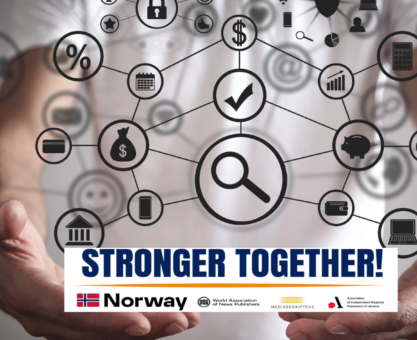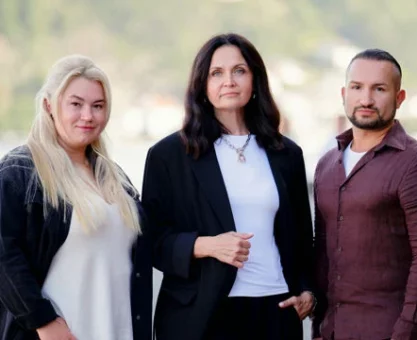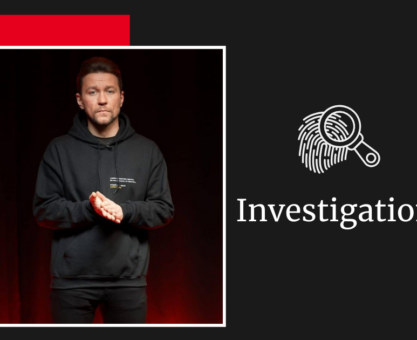As part of the «Stronger Together: Transparency and Anti-Corruption» program, we continue our series of stories about mentors and their teams — regional media outlets developing investigative journalism.
Meet Oleksandra Gubytska, project lead and investigative journalist at NGL.media, with over 15 years of experience in the field.
«The development of regional investigative journalism is not only about transparency and accountability of local authorities — it’s also about strengthening the media themselves. The skills they acquire help them improve across all formats and genres.Just as there are ‘news deserts’ in Ukraine, there are also ‘investigative deserts’ in certain regions. Trainings alone are not enough. And being the only investigative journalist for an entire town, district, or region is extremely difficult. Funding long-term fellowships for young journalists within established investigative media helps bring newcomers into existing ecosystems.
Systematic support for local outlets — both financial and consultative — is a good foundation for building investigative teams.I hope that all teams in this project stay active, unafraid of challenges or experimentation».
Mentor’s team
«Fourth Estate»: after investigations, some were fired, others prosecuted
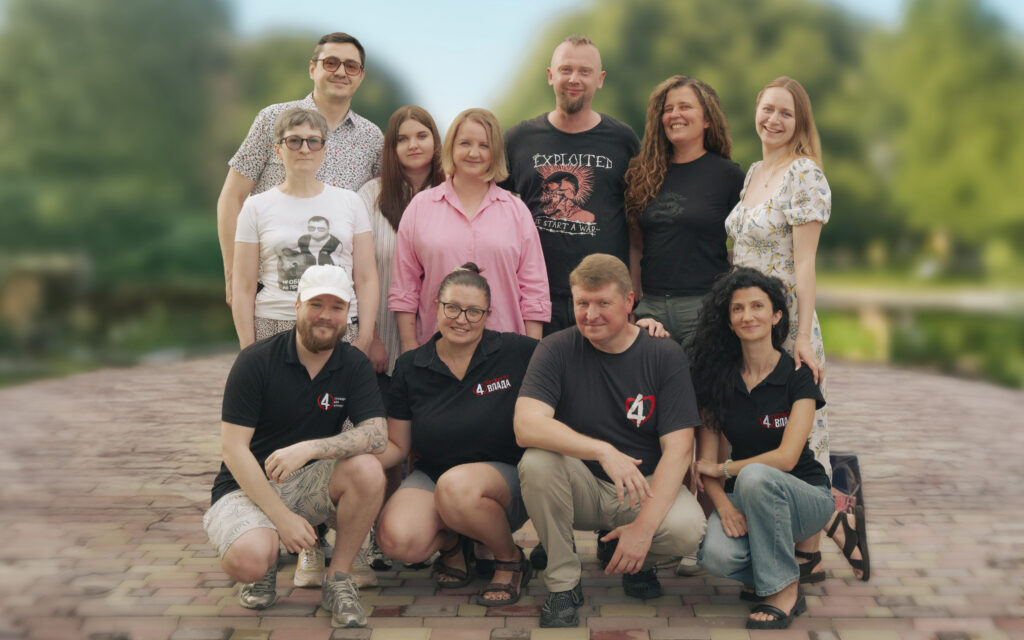
The media organization began its work in 2006 as the Rivne Agency for Investigative Journalism. That same year, they won a competition held by the International Renaissance Foundation, and in 2007 started producing investigative television stories for the local channel Rivne 1. The TV project was called «Fourth Estate». In the beginning, they functioned primarily as a production studio.
In 2010, they launched their own local media website. In 2012, they expanded by creating an editorial office in Lutsk and officially launched the «Fourth Estate» website. By 2017, the Rivne team refocused solely on their home region, while the Lutsk colleagues launched their own platform.
Today, «Fourth Estate» operates multiple online media outlets. Their reporting exposes government abuse, human rights violations, corporate fraud, and other issues of public interest.
«The Stronger Together project aligns with our goals — to conduct high-quality investigations and keep learning. That’s why we’re here», — says editor-in-chief Volodymyr Torbych.
The team brings a wealth of experience. Their investigations have led to dismissals, criminal prosecutions, and the restoration of rights — though, as Torbych notes, the impact is often hard to measure. The journalists have received numerous awards. For example, the investigation «The Harassing Professor from Rivne» earned a special prize at the National Investigative and Special Reportage Awards in 2018. Other awards include «Amber Children» («Honor of the Profession», 2017) and «The War for Ukrainian Amber» (third place in the 2015 Ukrainian-Polish Journalism Competition).
More recently, they have been recognized for investigations into healthcare abuses, such as «Informed Consent or Legalized Extortion?» and «Black Box: Why Rivne Patients Pay for Surgeries».
Despite their achievements, challenges remain — as with many independent media outlets. In 2025, Torbych says the team was shaken by Trump’s decision to dismantle USAID, but European support has helped them stay afloat. Still, planning even 2–3 years ahead feels impossible.
«Our biggest challenge is finding people who are passionate about investigative journalism», — he says. «We lack both reporters and editors. The work is exciting, but stressful. Add a full-scale war, and the stress can become overwhelming. On top of that, we face targeted pressure from a local political-business group».
Looking ahead, the team plans to specialize its media projects.
«”Fourth Estate” will remain focused on anti-corruption investigations. We recently launched two niche platforms — Rivnenski Hroshi (Rivne Money) and Rivnenski Likarni (Rivne Hospitals) — to monitor local finances, business, and patient rights. Another site, Misto dlia Liudei (A City for People), will focus on urban planning, accessibility, and infrastructure in Rivne. Investigations will be part of all these platforms», — Torbych explains.
Through the «Stronger Together» project, the team also aims to strengthen its investigative work and continue training journalists — a key step toward building a more resilient newsroom.
«Lokator-Media»: becoming a stronger part of the professional community
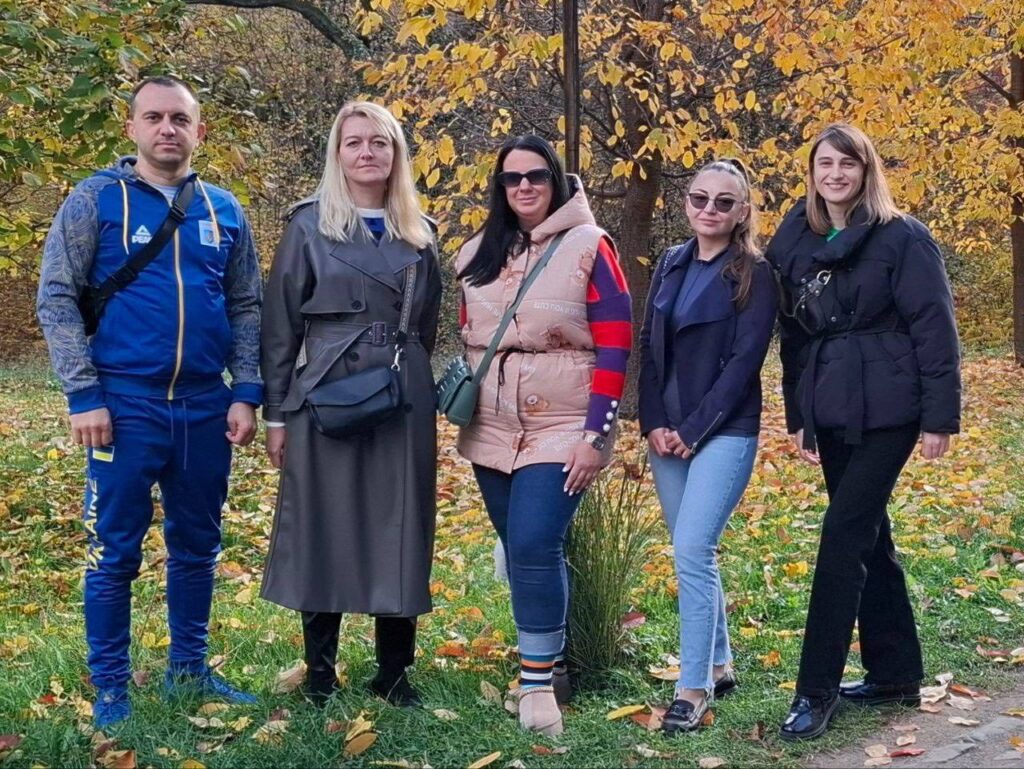
Since its founding in 2020, «Lokator-Media» has focused on local-level anti-corruption investigations and political analysis in cities such as Berdyansk, Tokmak, and others across the Zaporizhzhia region. In April 2022, the newsroom relocated from the occupied territory and expanded its coverage to the entire region. Its reporting now also includes documenting war crimes, exposing enemy propaganda, and identifying collaborators.
The team joined the «Stronger Together» project to gain additional knowledge and skills from experienced mentors and to receive funding essential for maintaining their editorial independence.
Their work has already led to real impact in local communities.
«After our story on a fake “director of the Berdyansk bus station”, the Security Service of Ukraine contacted us for additional materials and opened a criminal case in collaboration. The person is now being tried in absentia.
In another case, the director of the Zaporizhzhia Regional Youth Center hadn’t submitted asset declarations for three years. After our article, she was dismissed, and the Ombudsman filed an administrative report against her for failing to respond to our public information requests», — says editor-in-chief Oleksandr Pylypenko.
And these are just a few examples — there are many more.
The challenges they face are familiar: a lack of specialists who understand the local context in Zaporizhzhia, security risks (staff face pressure due to their work), insufficient funding, and lack of equipment. Through «Stronger Together», the newsroom hopes to address some of these issues and add another experienced investigative journalist to the team.
«We also want to become a more integrated part of the professional community, increase our visibility and influence, and gain new skills and technical support needed for our work», — adds Pylypenko.
«To our fellow participants — we wish you a few obstacles in gathering your materials and strong impact from your investigations».
«20 Khvylyn» (Ternopil): investigative reporting in the regions — a real obstacle course
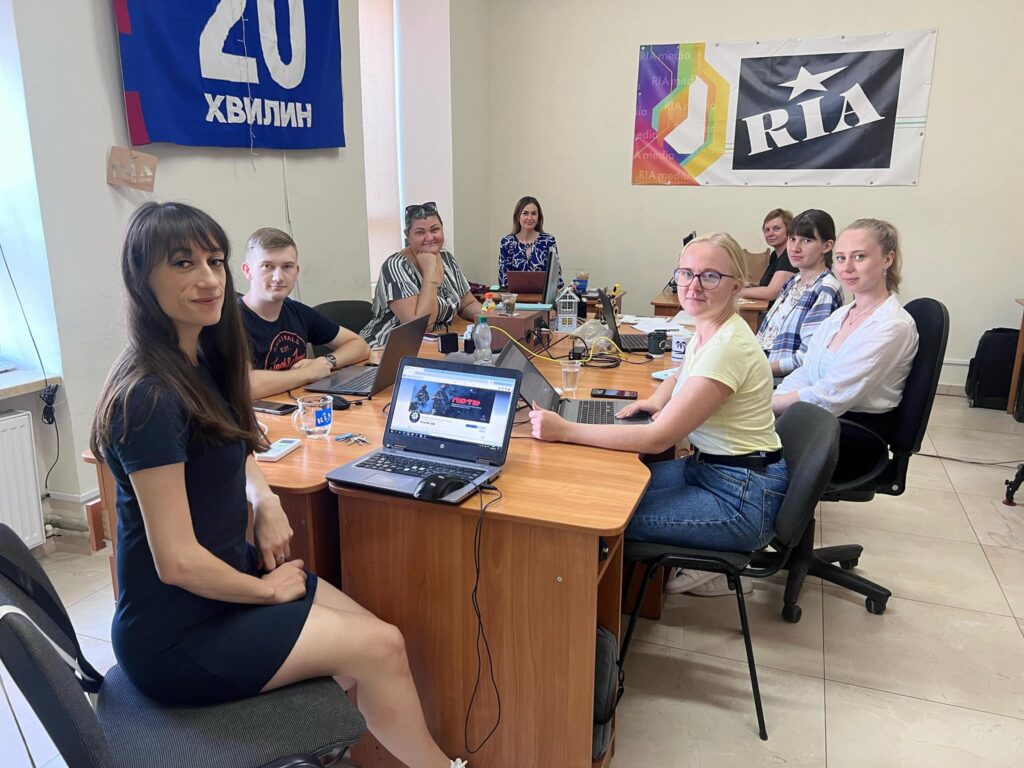
«Investigative journalism is not just about revelations. Above all, it’s about responsibility to society and the change we can achieve», — says Natalia Burlaku, editor-in-chief of the «20 Khvylyn» website and «RIA Plus» newspaper in Ternopil.
«Important stories often lie right at our feet — in a city council decision, on the fence of a new housing complex, or in a tender notice. Our media outlet has been active in the market for over 25 years, and the team systematically works with open data, studies permits, and even when we don’t produce full investigations, we often publish analytical pieces with investigative elements».
— Creating high-quality stories in the regions is much more difficult than at the national level. Why? «In small towns, where everyone is related or connected through business or school, it’s much harder to uncover a story — and even harder to publish it. Pressure, manipulation, threats — these are common when personal interests are at stake. And there is also the constant news flow to manage, — Natalia emphasizes
«We’re not solely an investigative outlet — we’re a news media covering a wide range of topics in various journalistic formats. Honestly, we can’t afford to spend months on a single investigation when the news never stops. War-related pressures and a small staff definitely affect our content output».
Despite that, the outlet has produced impactful investigations — cancellations of construction permits, criminal cases initiated, hefty fines enforced.
«We constantly strive to keep local officials and unscrupulous businessmen on their toes. Land schemes, corruption, inflated tenders, budget embezzlement, unlawful departures of officials during wartime — these are our most frequent topics».
With such reporting comes challenges.
«After we published about illegal land allocation and construction, opponents fabricated a myth that our entire print run contained psychotropic substances — we had to debunk it publicly. People threatened to “send us to the zone”. Last year, an anonymous Facebook group even faked the death of our colleague and set up a fraudulent fundraiser — likely in response to one of our major stories. Pressures come in all shapes, but we’re not stopping. We know our mission and the value of our audience’s trust», — Natalia continues/
Participation in the «Stronger Together: Transparency and Anti‑Corruption» project is an opportunity not only to enhance the team’s skills and train less experienced staff in investigative journalism and tools — but also to work alongside other editorial teams unafraid to dig deeper.
«I hope this project becomes a community of support and knowledge-sharing, where not only stronger texts are born, but real media partnerships. I’m convinced — the more regional media tackle truly resonant issues, the fewer gray zones and impunity exist. And the stronger we all become — as journalists, outlets, and society», — Natalia concludes.
Stay tuned — we’ll soon introduce other project mentors and their teams.
Read also: Investigations without compromise. Meet Alisa Yurchenko’s team in «Stronger Together»
***
The program Stronger Together: Media and Democracy is implemented by the World Association of News Publishers (WAN-IFRA) in partnership with the Association «Independent Regional Press Publishers of Ukraine» (AIRPPU) and the Norwegian Media Businesses’ Association (MBL) — with the support of Norway.


